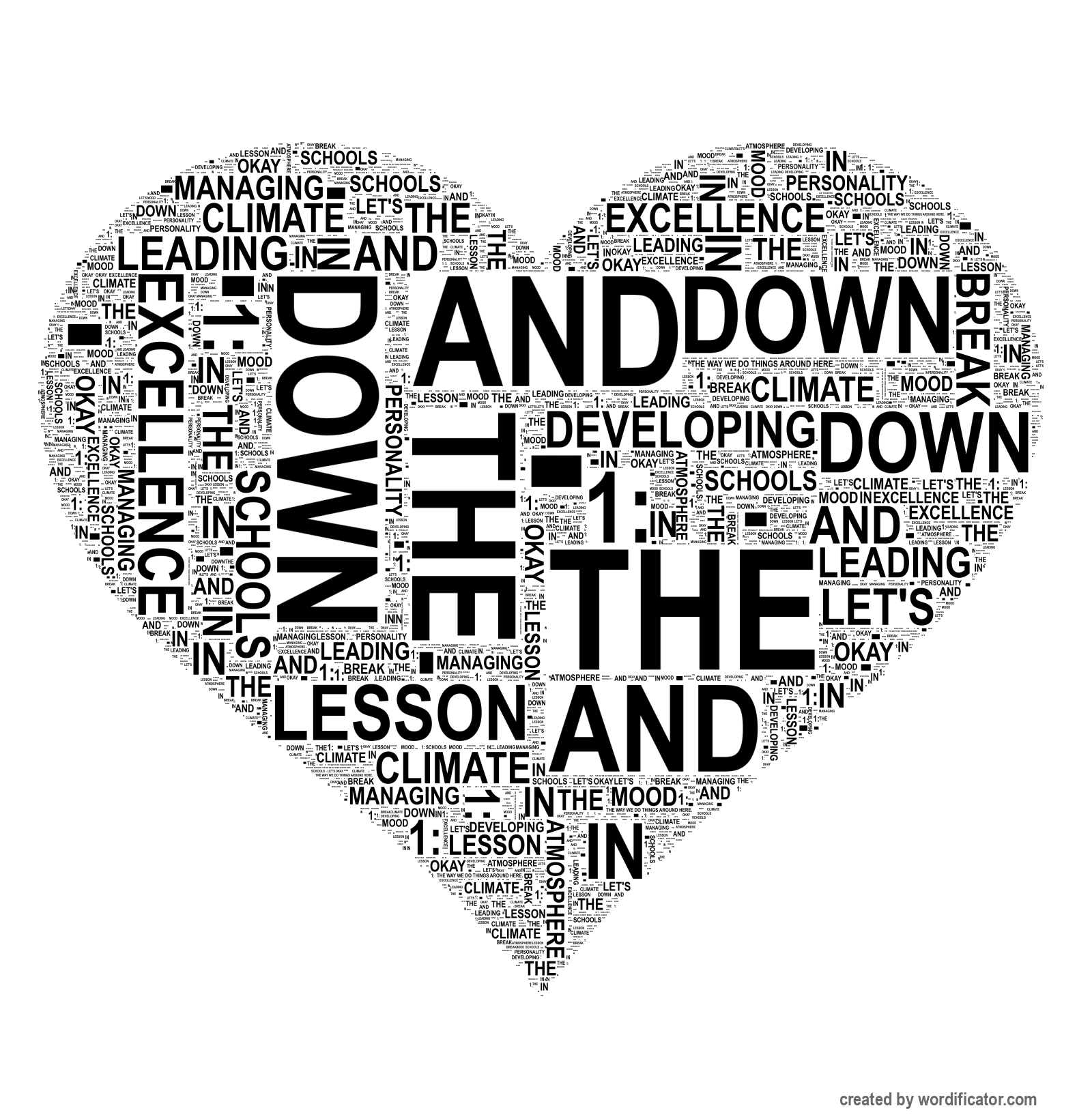Used words
personality
the way we do things around here.
climate
mood
atmosphere
Okay
let's
break
down
Lesson
1:
Developing
Excellence
in
Schools
-
Managing
and
Leading
the
School's
Organisational
Culture
Climate.
This
lesson
is
foundational
for
anyone
involved
school
leadership
management.
It
focuses
on
understanding
that
a
not
just
collection
of
individuals
classrooms
but
complex
organisation
with
its
own
unique
or
atmosphere.
significantly
impacts
everything
from
teaching
effectiveness
to
student
well-being
overall
success.
Here's
an
explanation
key
focus
areas:
1.
*
What
it
is:
refers
shared
values
beliefs
attitudes
practices
norms
characterise
organisation.
It's
often
unspoken
deeply
influences
how
people
behave
interact
perform.
In
context:
about
fundamental
assumptions
beliefs
held
by
teachers
administrators
staff
sometimes
even
students
parents
what
stands
for
decisions
are
made
conflicts
resolved
truly
valued
(e.g.
academic
excellence
well-being
innovation
tradition
compliance).
Why
it's
important:
A
strong
positive
organisational
culture
can
foster
loyalty
motivation
collaboration
sense
purpose.
weak
negative
lead
apathy
conflict
low
morale
poor
performance.
2.
Organisational
School
Classroom
Climate
While
closely
related
culture
seen
as
manifestation
–
observable
patterns
behaviour
feelings
attitudes
experienced
within
at
given
time.
Climate:
The
entire
workplace
learning
environment.
Does
feel
welcoming
oppressive
collaborative
competitive?
School
Specifically
perceptions
students
staff
regarding
physical
social
environment
school.
Key
aspects
include
safety
relationships
institutional
specific
individual
shaped
teacher-student
interactions
peer
instructional
strategies.
classroom
promotes
engagement
learning.
more
tangible
easier
change
than
culture.
Improving
be
strategic
way
gradually
shift
underlying
leads
better
engagement
improved
teacher
effective
3.
Teaching
Learning
aspect
broader
directly
pertains
core
business
education.
describes
practices
constitutes
meaningful
aspects:
Teaching:
Are
teachers
encouraged
innovate
stick
traditional
methods?
Is
professional
development
valued?
there
collaboration
among
teachers?
Learning:
rote
memorisation
deep
understanding?
student-centred
teacher-centred?
failure
viewed
opportunity?
Expectations:
expectations
achievement
performance?
robust
ensures
consistency
educational
quality
across
school
fosters
continuous
improvement
educators
outcomes
personal
development.
4.
Factors
Contributing
Positive
section
explores
elements
leaders
cultivate
build
desired
environment:
Leadership:
Strong
visionary
articulates
clear
vision
learning
models
behaviours
supports
innovation.
Shared
Vision
&
Values:
collective
commitment
aims
achieve
academically
developmentally.
Collaboration:
Opportunities
work
together
share
best
co-plan
provide
support.
Professional
Development:
Ongoing
relevant
training
growth
opportunities
educators.
High
Setting
ambitious
yet
achievable
both
staff.
Recognition
Celebration:
Acknowledging
celebrating
achievements
teachers.
Open
Communication:
Transparent
honest
communication
channels
encourage
feedback
discussion.
Safety
Support:
physically
emotionally
safe
where
supported
take
risks
learn
mistakes.
Student-Centred
Approach:
Pedagogies
prioritise
needs
active
participation.
Parent
Community
Involvement:
Engaging
external
stakeholders
process.
5.
Decision-Making
Tools
area
suggests
will
also
delve
into
practical
strategies
tools
use
actively
shape
climate.
isn't
makes
good
maintain
it.
Data-Driven
Decision
Making:
Using
performance
data
surveys
(staff
satisfaction)
other
metrics
identify
areas
Strategic
Planning:
goals
action
plans
cultural
traits.
Communication
Strategies:
Implementing
internal
reinforce
values
vision.
Performance
Management
Systems:
Aligning
appraisal
systems
behaviours.
Conflict
Resolution
Techniques:
address
disagreements
strengthens
relationships
adheres
values.
Team
Building
Activities:
Strategies
cohesion
collaborative
spirit
Policy
Creating
policies
reflect
support
norms.
essence
1
unseen
forces
(culture
climate)
drive
school's
success
equipping
future
knowledge
initial
intentionally
manage
cultivates
thriving
Create your own






